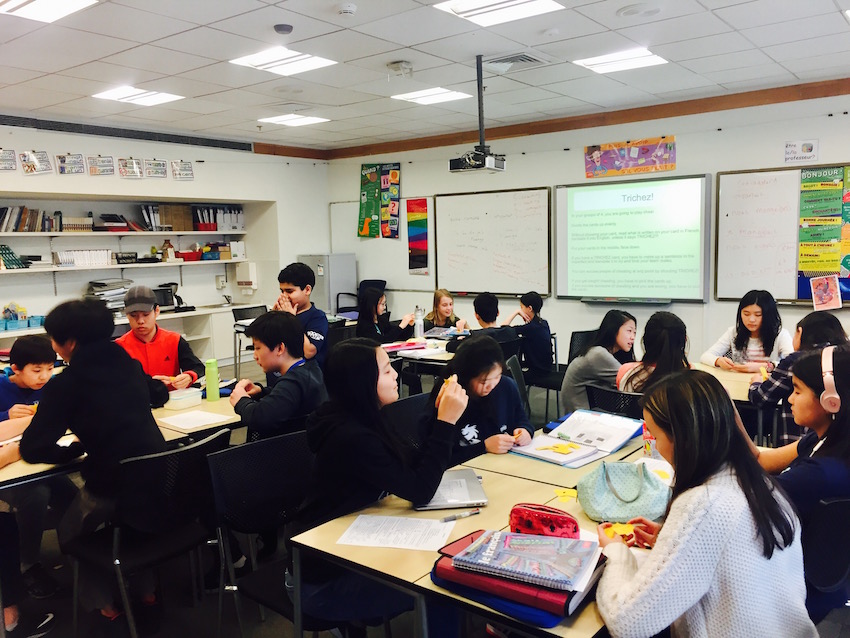It is easy to consider international teaching as simply ‘teaching in an international school’, but until you start to look into the idea for yourself, it is hard to understand how broad the concept really is. There is, literally, a whole world of aspects that need considering before you can make a decision on taking an international role. In this week’s blog post, Katie Lockett tells us her top three.
ONE weekend, my boyfriend and I were having a conversation about how we had tired of our jobs in London. We were both looking into jobs outside of the city. TWO weeks later, I was asking my Head of Department for a reference and she was telling my Head Teacher that I might be leaving the school. THREE days after that, I was having my first of three Skype interviews with the Senior Administrators at the International School of Beijing – where I now work.
Prior to signing up to TeachersHorizons and deciding to teach abroad, I had done extensive research about international teaching and I had asked myself these three questions:
1) Which curriculum?
 There are essentially two types of international schools: IB World Schools and Foreign Curriculum Schools (e.g. British International Schools).
There are essentially two types of international schools: IB World Schools and Foreign Curriculum Schools (e.g. British International Schools).
The advantage if you are, say, British, and then go and teach in a British international school, is that the transition to the new school will be easier as the curriculum and examinations will be familiar. The advantage of an IB World School is that this is a program that is offered in schools all around the world, and thus experience in teaching an IB curriculum gives you a lot of flexibility to move to different schools and countries in the future. However, the challenge is that it really is quite a different way of thinking if you haven’t taught in that way before. The IB curriculum is also considered to be a prestigious program and thus international schools are often hesitant to hire teachers who have not taught it before.
Personally, I didn’t want to teach in a British International School, despite coming from the UK. I wanted to experience the challenge of a new curriculum. For others though, it may be more about the experience of living in a new country and that’s the enjoyable challenge, so no need to change curriculums too!
Click here to find out more about the International Baccalaureate curriculum
 2) What school?
2) What school?
There are many different types of international schools; small start-up ones, large, well-established ones, academically selective ones, ones with a more comprehensive intake, those serving the expat community of the area or those that are more like bilingual/immersion schools and serving local students. There are plusses and minuses of all types of schools obviously…it just depends on what you’re looking for.
Are you looking for a small school where you can really make your mark at a whole-school level? Or a ‘well-oiled machine’ where you have the structures in place allow you to really develop your classroom teaching? Do you enjoy the challenge of teaching large numbers of EAL students or of stretching very able learners?
Personally, having worked in inner-city London before, I was already quite confident about my skills to support EAL learners. I wanted international teaching to give me the opportunity to teach in a very academically focused environment, so I chose a school that serves expat and diplomatic students rather than local students.
Our Recruitment Advisers can help you decide which type of school is for you. Sign up here and get in contact with us.
3 ) How do I want to develop professionally and personally?
) How do I want to develop professionally and personally?
As I’m sure is clear by now, my decision to teach abroad was very much a professional decision. I wanted to develop my knowledge of curriculums and of teaching a different student body. My decision making was also led by my desire to develop my craft as a classroom teacher. Hence my decision to choose a large, well-established and well-resourced school which offers generous professional development.
If I was looking to focus on personal development, I would have chosen a smaller school, where it would be easier to have more interaction will colleagues outside of my department and where I could make more of an impact at the whole-school level. My strong focus on the professional development aspect of international teaching meant that my job search focused heavily on the right school, and the location mattered significantly less to me.
For some people it is a specific country that they want to live in, or a specific continent that they want to travel around so the area, over the school, becomes the focus of their job search. That said, although I ‘accidently’ ended up in Beijing, as it happened to be the location of the perfect job and school for me, it turns out that Beijing is a fantastic city and I would definitely choose this location again!
Read this blog written by another of our teachers who recently moved to Beijing.
So my final piece of advice is this. Whichever curriculum, type of school or location you are offered for your first international post, make sure you do your research, know your motivations and be patient until you find the ‘perfect match’. Good luck!




